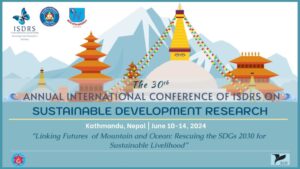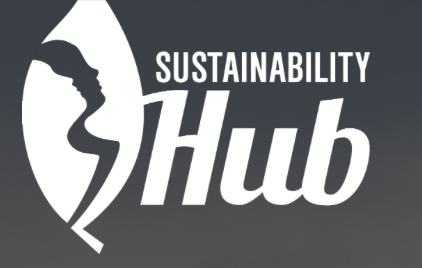Goals And Objectives
Education for sustainability (ES) has a very important role to contribute to the main theme of the ISDRS 2021 Conference. ES research and practices have had a great increase during the twenty last years, from campus operations, to curricula development and delivery, to sustainability assessment and communication, as well as organisational management. The aim of this track is to build upon ES knowledge, enhancing current practices, and propose innovative ideas to make and transform societies more sustainable. We invite researchers, educational institutions, practitioners, and stakeholders committed to ES to this track in order to share your knowledge and experiences, and present your research activities in this topic.
Contributions from the following areas include, but are not limited, to the following themes:
-
- Innovative and inclusive approaches in sustainability science education;
- Rethinking education for sustainable development theories, practices and approaches;
- New competences and pedagogical models for education for sustainable development;
- Stakeholder engagement and participation for education for sustainable development;
- ES competence based teaching related to the Sustainable Development Goals, Agenda 2030;
- Strategies to overcome resistance to sustainability implementation;
- ES efforts to change attitudes, behaviours, and lifestyles;
- Knowledge transfer and partnerships between academia, companies, civil society, and governments;
- Explore sustainability knowledge/literacy acquisition at individual, institution country level;
- Evaluation of the impact and effectiveness of Education for Sustainability actions and approaches at short, medium and long term and on the society;
- Holistic integration of sustainable development into whole educational system, such as education, research, campus operations, outreach, assessment, reporting, on-campus life experiences, and educating-the-educators;
- Integration of education for sustainable development in all educational chain from kindergarten to university and thereafter, in life-long learning and labour market; and
- Integrated sustainability assessment tools and benchmarking of ES.
- We invite all participants to build upon the many great works on ES already published, to explicitly state what their contribution to ES is, and how other researchers can learn from your experiences.
Past Conference
Nanjing, China 2019
Track chairs: Sandra Caeiro and He Xu
Different types of research and practices were presented to implement Education for Sustainable Development (ESD) at different geographical and educational contexts many at Higher Education level, but not only. At Higher Education (HE) level, integration of ESD teaching was presented according to a transdisciplinary way and through creative problem solving methods. Still at HE level it was discuss how students are embedding sustainability and the need to engaged them as active participants in the process. In addition success examples of implementation of sustainable development empowerment in informal settings and environmental ethics education at elementary school were given.
It was highlighted the importance of continuing the educational initiatives at any level of formal or informal learning or type of practices (from curricula, campus operation, external community, among others), but the main challenge is still to evaluate the real impact of these initiatives, and how we are really reaching changing to more sustainable behaviors.
Messina, Italy 2018
Education for sustainability:
Most presentations about ESD practices at Higher Education Institutions (HEI) – Their role was reinforced, as well as implementation of holistic approaches, and the need to institualize ESD not only at University level but also at governmental and policy levels. Nevertheless bottom–up initiative were presented.
Also highlighted:
- - Importance of non-formal initiatives (social media, like Facebook) and formal programs to integrate ESD. Importance of lay knowledge
- - Need of appropriate link between pedagogical tools to fulfil competences to ESD, e.g. gaming, system thinking and others
- - Need the use of tools to evaluate effectiveness of Educational programs or holistic approaches that allows ways of improvement
- - Continuing the offer of new programs or courses incorporated in formal programs, also with links with external stakeholders
Bogotá Conference 2017
Track 1c Role of academia (advocacy and education in sustainable development science)
Different types of research were presented to apply Education for Sustainable Development (ESD) many at Higher Education level. Experiences vary from including sustainability practices in hard sciences courses (like algebra), to courses of Circular Economy in formal programs ... (read more here)
LinkedIn Discussions
Recent discourses on the ISDRS LinkedIn discussion group:
Jan. 2018, Donovan Russell posted: Becoming Skilled and Knowledgeable in the Many Aspects of International Development
March 2017 Vincent Blok posted: Which individual competencies are needed for sustainable entrepreneurship?
March 2017 Thomas Brudermann posted: Joint International Master in Sustainable Development
Next Conference: Track 2b
Keep up to date with developments of ISDRS 2024 Track 2b here
“Linking Futures of Mountain and Ocean: Rescuing the SDGs 2030 for Sustainable Livelihood“
Who are we?
Knowledge Resources
State of the Art:
Recommended Sources:
- Sustainable Development Solutions Network: Education, Quality and Learning for All (EQUAL)
Routledge & Earthscans' Sustainability Hub
Find useful essays, free books and articles, case studies and more at our partner's website:

